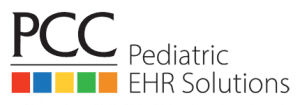Very few tasks cause a pediatrician’s eyes to glaze over quicker than billing. It is a labyrinth of rules, regulations, co-pays and no-pays. Unfortunately, the only way a medical practice can survive is by timely and accurate billing.
PedsOne, located in Winooski, Vermont, has been in the business of medical billing service and practice consulting for 8 years. The company is different from other medical billing services in that it focuses exclusively on one specialty – pediatrics – and uses one software platform – PCC.
The owner and general manager of PedsOne, Tim Rushford is not joking when he says, “We have primarily two types of employees – very experienced medical billing professionals and very, very experienced medical billing professionals.
“The PedsOne team of experts includes certified coders, former medical practice managers, ex-billing department managers and professional billers. We pride ourselves on fully knowing the specific directives of your payer mix, industry trends and up to date billing changes that keep your practice on the leading edge of pediatric billing.”
“This pediatric specialization allows us to be successful in the challenging service of practice billing. We also enjoy the fact that we work with doctors who take care of kids. That is meaningful, in and of itself, for us.”
I think professionalism is important, and professionalism means you get paid.”
Erica Jong
Why Do Pediatric Practices Outsource Their Medical Billing?
“This is driven by several factors,” Rushford said. “The primary reason for their outsourcing to us is human resource related. Frankly, if a pediatric practice can recruit and retain enough of the right billing staff, they are in a good position to execute this billing function in-house. Unfortunately, in today’s work environment, high turnover of staff is a common challenge and it is often difficult to find knowledgeable, expert staff.”
“As billing consultants, we help such providers determine staffing needs by evaluating billing task distribution and staff expertise, tracking the number of claims and charges processed per month, looking at the payer mix, factoring in visit complexity and aligning their staff ratios with industry and PCC benchmarks. We also ensure that they understand the entire revenue cycle which helps them assess staffing needs for billing and front desk. Finally, we help them to understand an optimal distribution of responsibility for this staff.”
Tracy Harter, senior billing specialist and team lead adds, “The providers want to be involved in patient care and, in many cases, they don’t know what they don’t know about billing. We provide them the tools they need to better gauge the performance of their revenue cycle and to hold staff accountable for their areas of the practice.”
PedsOne Also Offers Consultative Services
“PedsOne is frequently asked to do consultative based work for practices that don’t want to outsource their billing,” Rushford said. “What they usually request is training, advice or objective oversight regarding their billing. This works quite well because the practice gets to keep their billing in-house, but they can tap into our team, which has extensive knowledge of the best practices for pediatric billing.
Practices who conduct their billing in house often want to know if they are appropriately staffed and organized. “In many cases, the provider may not be fully aware of the various billing workload requirements because they are more focused on patient care” noted Jenn Austin, a senior billing specialist and team lead at PedsOne. ” For example, they ask us how many billers and front staff are needed to facilitate a good workflow for a 4 FTE provider practice”.
“We have also found that it is advantageous to have at least one provider in the practice, who is savvy and engaged about the business side of the organization, to have daily involvement in this process. This enables the doctor to have regular contact with the billing group and keep track of the revenue flow.
“While we know that these practitioners did not go through medical training to become a business owner, once they launched a practice, they became just that. They are then responsible for being knowledgeable in such areas as human resources, finance, operations and workflow management.
“To many pediatricians, billing is (rightly so) an annoyance and a constant source of frustration. When I visit a pediatric practice, I can usually tell if billing is not going well. There is a general aura of angst throughout ”
The 5 Billing Traits of a Well-Run Practice
The Most Important Trait: Effective Oversight and Management by the Billing Manager, Office Manager and the Provider
“While setting up this management may seem simple, it is actually quite challenging, “Rushford said. “Often, when we become involved, something has gone seriously wrong with the practice. And many times, these business challenges are just the tip of the iceberg. It’s amazing just how long a practice can struggle with sub optimal revenue cycle!
“Having the proper oversight and management of billing performance results in the generation of reports and analysis of revenue trends. This is extremely important. We help practices create that information structure that allows them to know what’s going on with the money side of their business.
“This includes productivity measures, such as the number of visits and revenue per visit to coding profiles which gives them an idea about what is happening from the clinical side. We also help them with more payor information such as gross and net collection ratios.”
The Second Trait: The Billing Staff Has Regular Communications with the Provider
“Even if it’s just once per week,” Harter said. “The providers and the billing staff should discuss what’s not going well and celebrate what is going well. This is paramount to running an efficient office.
“This communication must be a proactive effort on the part of the billing staff,” added Rushford. “Typically, the provider’s busy schedule makes it difficult to visit the billing department as often as they should. The process of billing may not be as rewarding or important as taking care of kids, but it is a necessity and the communication is certainly key to this.”
The Third Trait: Having Adequate Billing Staff
“In many cases, the performance of the billing staff is the reason a practice chooses to outsource this function,” said Rushford. “This is not a case of the number of staff members, but rather it is the billing competency of these employees.
“In areas where the unemployment rate is low, an ongoing recruiting program is vital. Every practice needs effective screening tools for recruitment in order to find and retain talented billing staff. Unfortunately, in some cases hard choices about changing staffing are required. This is not taken lightly by either us or the practice. It’s about building an organization that leads to a better operation for all and, most importantly, a better healthcare for kids.
“Providers should remember that a billing specialist is just that, a specialist in managing the revenue cycle of the practice. They should be nurtured, trained and supported.”
The Fourth Trait: Providers Trust Their Billers
“In the situation where a doctor is not trained in analyzing revenue trends and billing, there can be some mistrust about these activities,” Austin said. “It is human nature and even helpful to be suspicious about things we don’t understand. This trust must be sought and earned by the billing staff. For example, a billing specialist could approach a provider with different ways to code for treatment and thereby expedite payment. Over time, this can result in mutual trust.”
The Fifth Trait: Being Informed on Health Industry Trends
“Healthcare continues to change rapidly,” Rushford said. “and so it is important for all of us to stay informed on the potential changes and their ramifications.
“Doctors do a good job of this from a clinical standpoint, but the billing, human resources and operations staff must also work to stay up-to-date on the regulatory changes and best practices of the healthcare industry and general business.
“Practices can often become very isolated and it is important for the billing staff to have the information that helps them stay abreast of industry trends such as: payor rules, state directives and federal guidelines. There are also billing trends, such as the increasing use of smartphones to pay bills and patient portals, that many pediatric practices are behind on. More and more, due to high deductible health plans, patients are assuming more responsibility for payment for care. This requires changes in the billing process.
“Attending industry meetings such at the PCC Users’ Conference is a way to stay current with industry changes. This annual conference is excellent for providers and office managers and it is also a great learning experience for billing managers and staff. This conference allows them to connect with other professionals who do what they do. In 3 days they can become up-to-date on the regulatory changes and the healthcare industry best practices.
“Another great group to help providers and practice management and billing staff keep up with healthcare trends is SOAPM. This organization, which is a part of the American Academy of Pediatrics, provides current information about practice management advances.
“Do more than you are being paid to do, and you’ll eventually be paid more for what you do.”
Zig Ziglar
How PedsOne Works with the PCC Platform
“The PCC EHR is a very robust system,” Rushford said. “and we share their view of client data ownership. Neither PCC nor PedsOne holds the data of our clients. We both know that the data belongs to the practice.
“PedsOne connects to the revenue cycle of the practice as if we were just down the hallway. In some ways this is an advantage and in other cases it can be a disadvantage if the doctor likes having a billing manager in-house.
“In our offices, we just do billing all day! This allows us a certain efficiency to focus on the billing exclusively, without the distractions of being in a practice environment. However, from an IT standpoint, we are as close to the process as in-house staff.
“Our physical offices are located across the street from the PCC headquarters and I consciously decided this. We believe our close proximity to the software developers and customer service professionals at PCC is a distinct advantage for all parties. For other industry vendors, the relationship between the billing system and the billing service can become antagonistic with one company pointing fingers at the other when things go awry. That is not the case with our relationship with PCC.
In order to preserve the integrity of our specialty business model, we don’t take clients if they don’t use the PCC platform.
“We want that triad relationship among the practice, the billing service and the billing system to work seamlessly, especially as it effects the patient experience. We work hard to maintain this relationship and PCC makes it easier because they are so involved with their clients’ needs.
PCC: A Unique Company
“PCC is a unique company,” Rushford said. “They provide services that no other software platform offers. As an example of this, take a look at the PCC Dashboard. The way that they provide information to their clients about their practice – clinically, operationally, financially – is really exceptional. They’re also legendary among pediatricians for their customer service and industry knowledge.
“Yes, we decline to pursue practices that don’t use the PCC platform. However, in the end, we are all about driving success for our clients. We can best do that with a good software vendor and PCC is one of the best.
For more information about PedsOne, visit their website.




